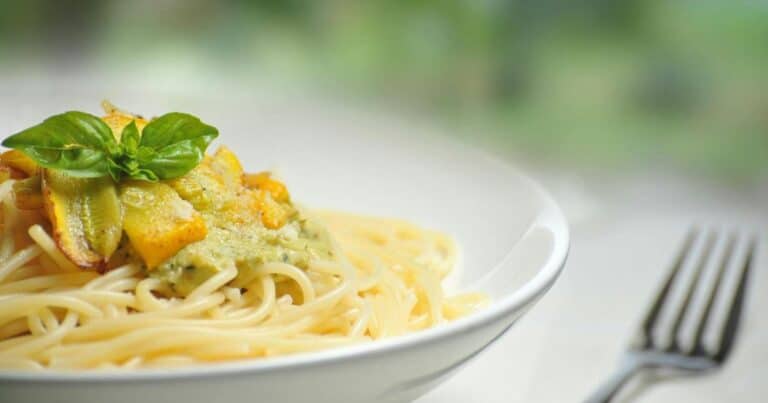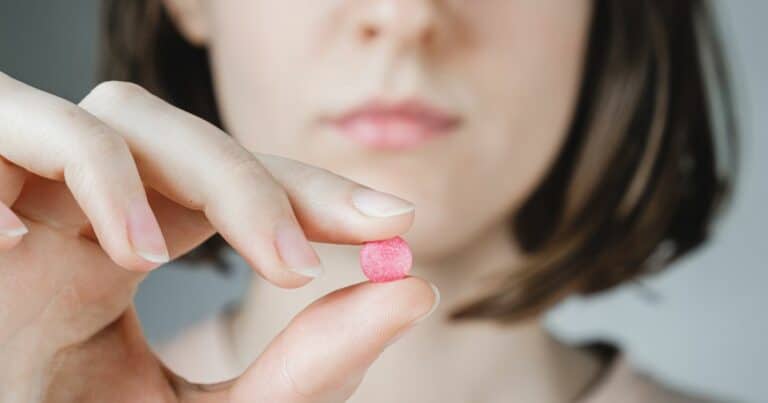
This article about boosting your immune system with pantry staples was last updated in 2022.
Having to stay inside during this isolation can be overwhelming, especially if you have children. It is natural to worry about their health and want everyone in the family to be in tip-top condition.
Before rushing out to spend hundreds of dollars on vitamins, check what items you already have in your pantry. There are so many basic ingredients that can help support a healthy immune system for all family members, including the kids.
Let’s start with the basics
Micronutrients such as vitamins and minerals make sure you are capable of functioning. Think of them as the building blocks and essential ingredients to make your first line of defence to any nasty germs. But, just like when you are building something, having extra building materials doesn’t necessarily do anything extra. For example, there is no point mega dosing on bricks if you don’t have everything else you need to go with them for an extension.
With vitamins and minerals, you just need to make sure you have enough to prevent deficiency and support your immune system. You don’t need to mega dose or hit massive levels of nutrients. More is not better and, in some cases, can make things worse.
What specific vitamins and minerals do we need to support a healthy immunity through COVID-19?
The main vitamins to help support your immunity throughout this time are vitamin C, vitamin D, vitamin A and zinc. Ensuring an adequate dosing of each of these will support a healthy immune system. Food sources of nutrients to help support a healthy immunity
Vitamin C
75 – 150mg is enough to prevent deficiency and support your immune system.
- ½ to 1 cup of capsicum / bell peppers / chilis
- 2 cups of kale
- 1 cup of papaya or strawberries
- 2 kiwi fruits or oranges or 1 mango
- 1 small head of broccoli or cauliflower
Vitamin D
We get it from exposure to sunlight as do a lot of animals and plants that we eat. Consuming 400–800 IU (10–20 mcg) of vitamin D per day in foods plus sunlight will cover your needs.
- Cold water fish like 1 150g fillet of salmon or tuna.
- 1 cup of shiitake mushrooms
- 5 Litres of “fortified” cow’s milk, soy milk or yoghurt
- 3 cups of “fortified” tofu
Vitamin A
Just 900 mcg per day is enough to prevent deficiency.
- ½ cup sweet potato
- 1 cup of cooked carrot
- 150g fillet of tuna
- 1 cup spinach
- 4 cups lettuce, broccoli or capsicum
Zinc
Prevent deficiency with about 11mg of elemental zinc daily.
- 2 oysters
- 150g beef steak
- 2 chicken drumstick and thigh
- 3 cups of tofu
- 100g hemp seeds or pumpkin seeds
- 200g almonds or brazil nut
Add some functional flavour
Natural flavouring and sauces to support your immune system
Sauces and flavouring can be a major source of sugar, fat and empty calories or it could be an added benefit of functional active ingredients. Traditionally flavouring comes from herbs, spices and seasonings and not just sugars with artificial flavouring designed to resemble traditional herbs and spices.
Onions, garlic and shallots
Onion, garlic and shallots have a lot of great benefits to immune system, traditionally used to support healthy blood and cardiovascular health and the basis of many flavours.
Celery
Celery often forms the basis of many stock cubes. Using fresh celery and adding celery seed can add that flavour and provide some other nutrients. Celery seed is often sold in capsules to aid fluid retention and swelling.
Reishi mushrooms
Reishi mushroom Ganoderma lucidium makes for a great savoury flavoured stock. Add it to anything that could use a nice beef like flavour. A teaspoon of pure Reishi powder added to savoury mince or Shephard’s pie or other soups and stews can really add some value. Reishi has a long traditional use for supporting a healthy immune system.
Fennel seed, cardamom pods and anise seed
Fennel seed, cardamom pods, anise seed are used in traditional food therapy systems such as Ayurveda to relieve spasms and cramps, traditionally added to teas for dry coughs and irritated throat or for other spams and griping in your guts and to relive gas and associated discomfort.
Cloves and clove oil
Cloves and clove oil is available for tooth ache as it can help to numb tissue it touches. It also has a reputation for numbing throat and on ulcers, teething and sore gums.
How to boost your immune system using pantry staples (cont.)
Clever combos for maximising yield
Consider the food lists mentioned above and realise a lot of the nutrients listed will be lost in the water when you boil or steam those foods. A good idea that you may want to try is to make a soup entrée or a nutrient dense tea / beverage to have with your meals made from that water.
Don’t just throw it away
Add some of those herbs, spices and seasonings. For example take the water left over after steaming the vegetables, throw in some anise seed, thyme and fennel seeds and continue to boil it or just let them sit in the hot water to steep and sip on that with meals.
Or add some garlic, onion, tomato paste and oregano and make as a soup entrée.
Organic versus non-organic?
Organic food does not necessarily mean it has more nutrients on the inside. It just ensures you don’t have toxins on the outside typically. For nutrients, you may not need to pay the extra for organic if that is outside of your budget. You may be able to clean your food to remove the toxic burden and still get the nutrients.
Skins and peels are the best place to find the nutrients so try not to just discard these parts.
Some helpful immune-boosting recipe ideas using ingredients above can be found here.

For more on this see: 15 Foods to seriously boost your immune system.















